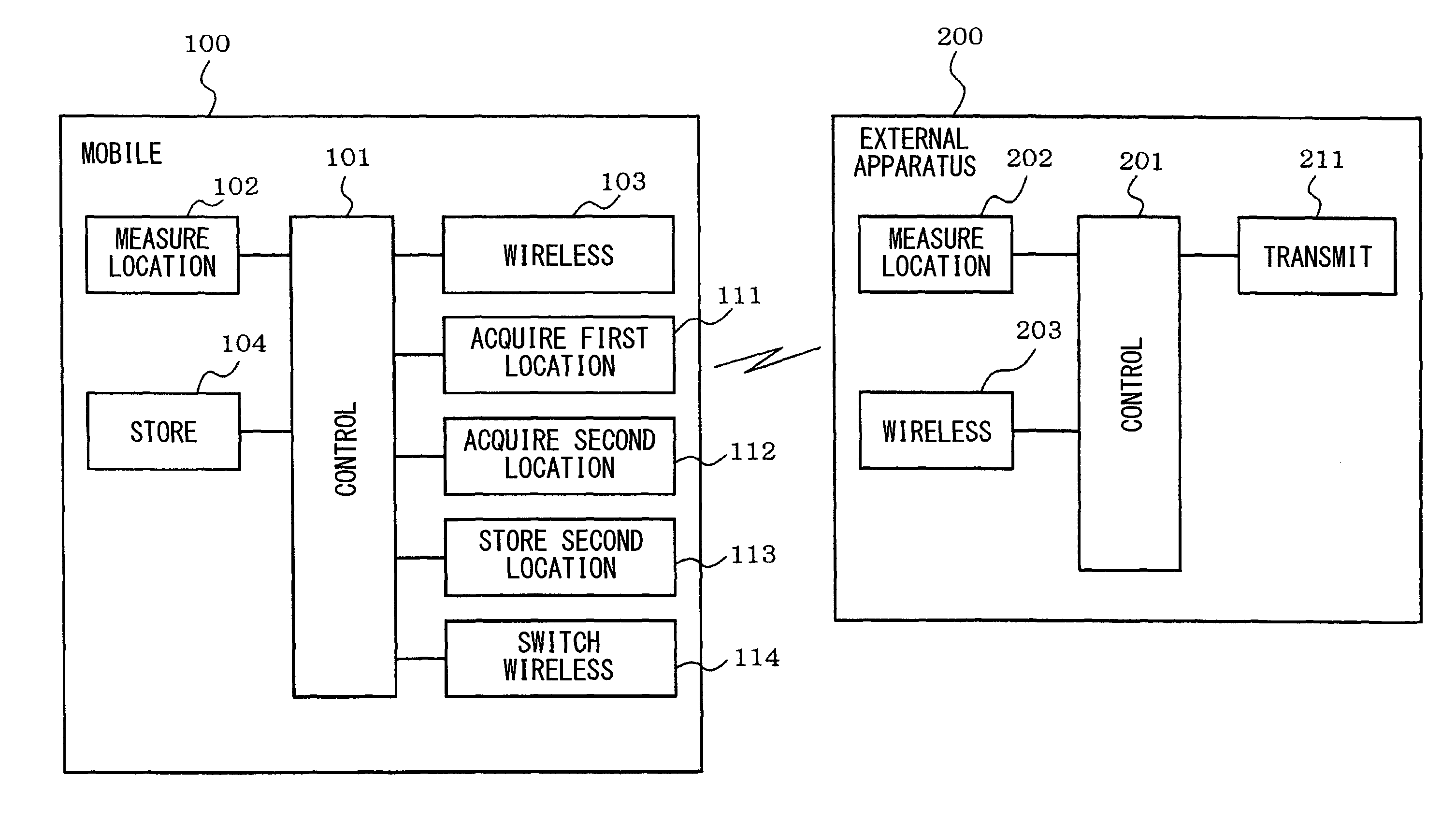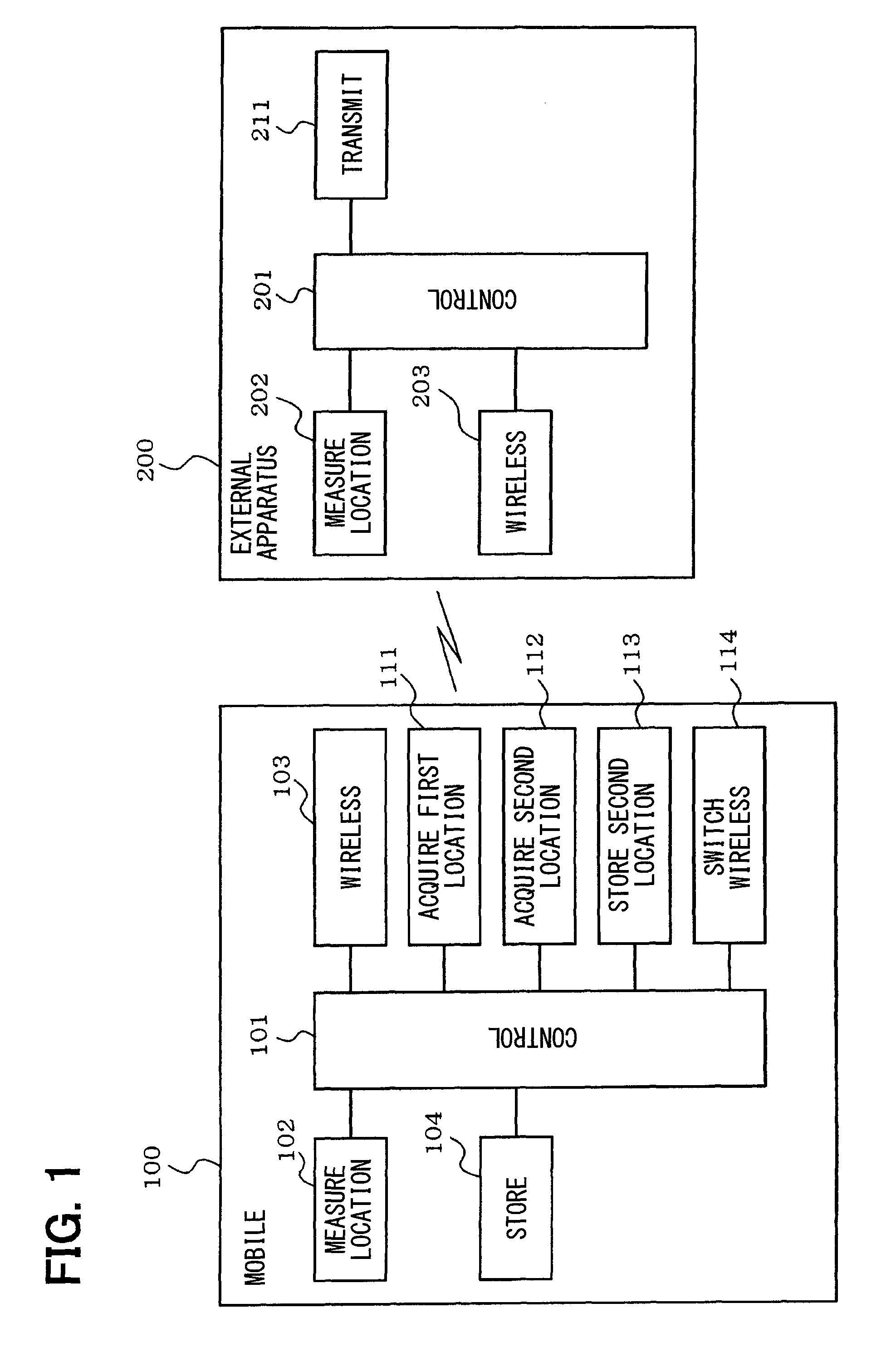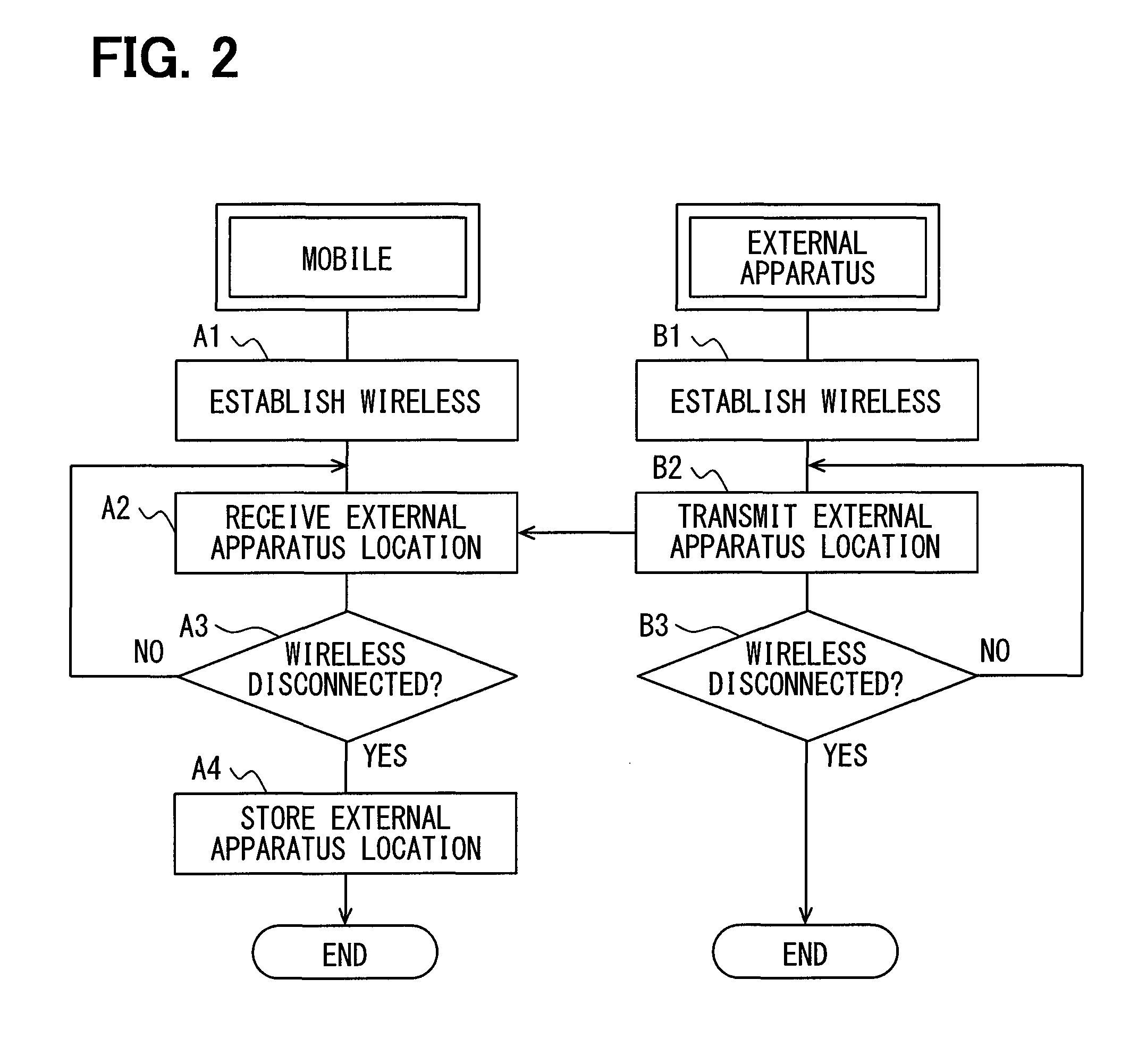Mobile communication apparatus switching on and off state with distance from communicating external apparatus
a communication apparatus and distance technology, applied in the field of mobile communication apparatus, can solve the problems of relatively rapid consumption of battery power by mobile communication apparatus, such as smartphones, and achieve the effect of sacrificing user-friendliness
- Summary
- Abstract
- Description
- Claims
- Application Information
AI Technical Summary
Benefits of technology
Problems solved by technology
Method used
Image
Examples
first embodiment
[0018]As in FIG. 1, a mobile communication apparatus 100 is formed, for instance, of a multifunctional mobile telephone (smartphone) and has a wireless communication function for wirelessly communicating with an external apparatus 200. The mobile communication apparatus 100 includes a control portion 101, a location detection portion 102, a wireless communication portion 103, and an information storage portion 104. The control portion 101 is formed of a well-known microcomputer that includes a CPU, a RAM, a ROM, and an I / O bus, which are unshown. The control portion 101 provides overall operational control of the mobile communication apparatus 100 according to a computer program stored, for instance, in the ROM or in the information storage portion 104. Further, the control portion 101 executes software, namely, a control program including a program for the mobile communication apparatus, to virtually implement a mobile communication apparatus location acquisition processor 111, an ...
second embodiment
[0044]A second embodiment will now be described. The second embodiment differs from the first embodiment in the process storing the external apparatus location. In the second embodiment, the information transmission processor 211 transmits vehicle exit information to the mobile communication apparatus 100 through the wireless communication portion 203 to indicate that the user has exited the vehicle. The vehicle exit information is generated by the control portion 201 when a detected behavior of the user implies that the user has exited the vehicle, i.e., when a door sensor (unshown) detects that a vehicle door is opened and closed (closed→open→closed), a door lock sensor (unshown) detects that a vehicle door is locked (locked→unlocked→locked), a parking brake (unshown) is manipulated, or a seat sensor of the vehicle is switched from the “on” state to the “off” state. The generated vehicle exit information is transmitted by the information transmission processor 211 immediately afte...
third embodiment
[0047]A third embodiment will now be described. The third embodiment is characterized by a wireless communication function automatic turn-off process, which is performed after the wireless communication function is turned on. More specifically, as in FIG. 7, when the wireless communication switching processor 114 switches the wireless communication function from the “off” state to the “on” state (G1), the mobile communication apparatus 100 causes a timer circuit (unshown) to start counting the elapsed time after switching (G2). While continuously counting the elapsed time, the mobile communication apparatus 100 monitors whether wireless communication with the external apparatus 200 is started, i.e., whether various information is transmitted / received though the wireless communication link (G3). If the wireless communication is started (G3: YES), the mobile communication apparatus 100 stops counting the elapsed time (G4), and then terminates the process.
[0048]If, by contrast, the wir...
PUM
 Login to View More
Login to View More Abstract
Description
Claims
Application Information
 Login to View More
Login to View More - R&D
- Intellectual Property
- Life Sciences
- Materials
- Tech Scout
- Unparalleled Data Quality
- Higher Quality Content
- 60% Fewer Hallucinations
Browse by: Latest US Patents, China's latest patents, Technical Efficacy Thesaurus, Application Domain, Technology Topic, Popular Technical Reports.
© 2025 PatSnap. All rights reserved.Legal|Privacy policy|Modern Slavery Act Transparency Statement|Sitemap|About US| Contact US: help@patsnap.com



